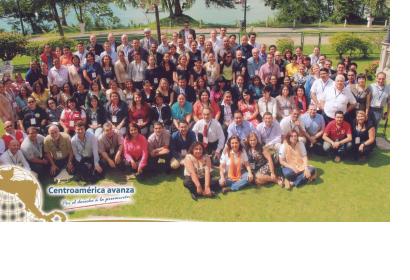UN-SPIDER participated in the Regional Consultation and Awareness Raising Workshop on Integral Disaster Risk Management in Central America which took place in Panama City, Panama, from 26 to 28 November 2013. The workshop was organised by the regional office of United Nations International Strategy for Disaster Reduction (UNISDR) for the Americas, by the Central American Coordination Centre for Natural Disaster Prevention (CEPREDENAC), by the regional office of the European Commission’s Humanitarian Office in Nicaragua (DIPECHO), UNICEF, the International Federation of the Red Cross and Red Crescent Societies (IFRC) and Plan International.
The event brought together more than 120 participants from all countries of Central America and elsewhere representing civil protection agencies, various state ministries (health, education, planning, etc), municipal authorities, regional and international organizations as well as non-government organizations which are conducting projects dedicated to integral disaster risk management (IDRM) in the region.
The workshop was conducted under the umbrella of the Central American Regional Policy on Integral Disaster Risk Management which was enacted by the Presidents of Central America in June 2010. It provided an opportunity for participants to assess recent advances, challenges and needs as a way to identify how to proceed in the region taking into consideration issues such as climate change, environmental degradation, population growth and migration to urban centres.
During discussions in plenary and working group sessions, participants highlighted advances at the regional and national levels in terms of policies targeting IDRM and disaster preparedness. They also raised issues regarding the involvement of state ministries in such efforts in all countries of the region. In addition, universities and training centres in the region have established academic programmes, some of them leading to professional degrees, targeting IDRM explicitly. Participants also recognized the challenge of frequent changes of authorities and staff in government agencies at all levels as a result of electoral processes and the need to advance on the implementation and enforcement of norms and regulations at the local level as a way to reduce the levels of risk through reductions in the exposition to hazards and vulnerability.
The workshop was also used to discuss potential strategies and suggestions to be submitted to UNISDR regarding the HFA-2 consultation process initiated by UNISDR earlier this year. Additional discussions targeted ways to address the needs to strengthen the capacities of national disaster reduction systems in all countries of the region, additional public and private funding targeting IDRM, management of information and communications, resiliency in case of droughts, and knowledge management.

